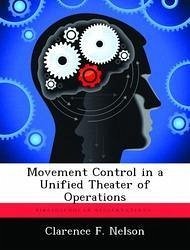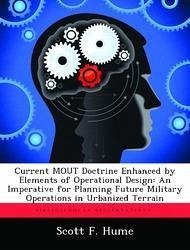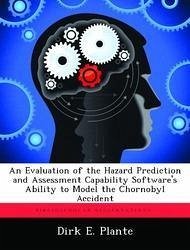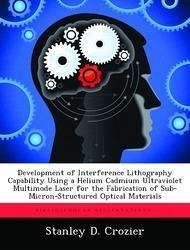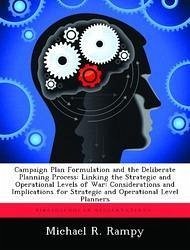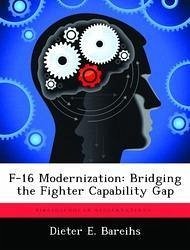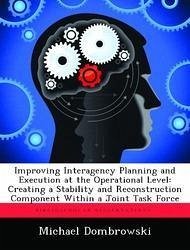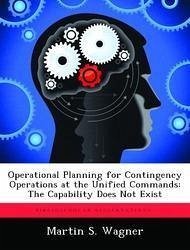
Operational Planning for Contingency Operations at the Unified Commands: The Capability Does Not Exist
Versandkostenfrei!
Versandfertig in über 4 Wochen
52,99 €
inkl. MwSt.

PAYBACK Punkte
26 °P sammeln!
This monograph addresses the question: Do the planning staffs at the Unified Combatant Commands have the personnel resources and training to conduct crisis action planning for contingencies without augmentation from other organizations? The Unified Combatant Commands are responsible for deliberate planning, Theater Engagement Planning and Crisis Action Planning, which often occur simultaneously. All of these activities plus required administrative tasks require personnel that possess the right training and education. When the Unified Combatant Command does not have the capability to conduct Cr...
This monograph addresses the question: Do the planning staffs at the Unified Combatant Commands have the personnel resources and training to conduct crisis action planning for contingencies without augmentation from other organizations? The Unified Combatant Commands are responsible for deliberate planning, Theater Engagement Planning and Crisis Action Planning, which often occur simultaneously. All of these activities plus required administrative tasks require personnel that possess the right training and education. When the Unified Combatant Command does not have the capability to conduct Crisis Action Planning it must get that expertise from elsewhere. Recent U.S. military operations have demonstrated a trend where the planning for crises is executed by an organization external to the Unified Combatant Command. This monograph focuses on the many doctrinal tasks that the Unified Combatant Commands must execute as identified in Joint Doctrine. It then discusses organization of the Unified Combatant Commands, requirements of Joint Military Professional Education, requirements for joint staff officers as established in the Goldwater-Nichols Defense Reorganization Act of 1986, and the School of Advanced Military Studies(SAMS) education process. This monograph then analyzes Operation Just Cause, Operation Desert Shield/Storm, and Operation Restore Hope to identify why external planning organizations were used. The conclusion identifies that the combination of many doctrinal tasks, organization of the command, mission of the command, training and education of the staff and statutory guidance have resulted in the inability to simultaneously conduct crisis action and deliberate planning. This monograph recommends that this problem could be improved by restructuring the service mix of the commands, requiring SAMS graduates in key planning positions, and reformation of the JPME process to include elements of the SAMS curriculum.






